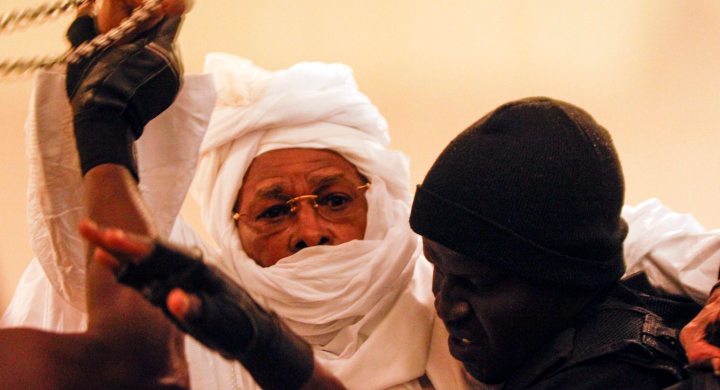Africa
Op-Ed: The Habré case and access to justice

On 30 May 2016, Hissène Habré, the former President of Chad, was convicted of war crimes, crimes against humanity, rape, forced sexual slavery and kidnapping by the Extraordinary Chambers of the African Union, sitting in Dakar, Senegal. The Habré judgment might represent a seismic shift in international criminal jurisprudence in Africa, but what does it mean for victims in Chad who suffered directly or indirectly from these atrocities? By TENDAI MAREGERE.
As the world, Africa and indeed Chadians celebrated the conviction of the Chadian dictator, the challenge is to translate this triumphalism into genuine access by the victims to the dividends of justice. There is no point being armed with a court judgment if it cannot be operationalised to bring closure to the suffering of victims. The euphoria that gripped the victims/survivors of the Habré dictatorship may soon turn into despair if due care and sufficient emphasis is not placed on pursuing restitution and linking this process to local perspectives of justice. For the relatives of more than 40,000 victims, the assumption that compensation might be their resource for closure might be misplaced. The torture, abuse, electric shocks, waterboarding and deadly punishments inflicted by the notorious secret police, the Documentation and Security Directorate (DDS), surely cannot be easily quantified from a victim perspective.
Seeking justice through internationally constituted tribunals and accessing that justice are two completely different but inter-related processes. More often than not, the notions of justice emerging from these so-called international criminal processes frame justice through a western and Eurocentric legalistic prism, which sometimes ignore aspects of what is most important to local actors. Undoubtedly, the Habré ruling further affirms the fundamental role of criminal justice systems in bringing to book perpetrators of heinous crimes. However, in the construction of the mandates for these judicial bodies, a clear and conscious effort has to be made to ensure that a people’s notions of justice is acknowledged and prioritised. Essentially, when establishing international tribunals, how are the issues of access framed to ensure that justice becomes meaningful to those that were denied it in periods of repression.
The Habré conviction brings into sharp focus the importance of operationalising the international/continental mechanisms in pursuing justice for victims/survivors of mass atrocity. Armed with the court judgment, the question that now needs to be addressed is how the victims of the atrocities access ‘that which they call justice’? Already, important work has been done by Human Rights Watch, The Association of Victims of Crimes of the Regime of Habré (AVCRHH) and others in assisting the victims to access the AU Chambers and have made a commitment to pursue a civil suit. Positively, the Chambers will, in that light, hold a second set of hearings premised on damages for civil parties and other victims. This is a step in the right direction. However, it is one thing to pay reparations or compensation, and another to ensure that victims/survivors access ‘their justice’. This is because some of the atrocities like rape, ethnic cleansing, and loss of opportunities cannot be objectively quantified and the modalities for redress are subjective. Monetary compensation has the potential to trigger another storm if the computation of such compensation is deemed, by the victims/survivors to be elitist, nepotistic and inadequate. For victims of grave human rights violations, there is always a tension between accessing social programmes to deal with basic needs and claiming the right to truth, justice, and reparations. To receive services that everybody is entitled to, such as humanitarian assistance or access to primary education, health care, and framing these as a form of reparation, may increase their sense of injustice and further damage the bonds of trust between the state and its citizens.
Ultimately, a number of questions persist, namely: how do we begin to frame the issues of access to justice in the aftermath of international criminal convictions? What does that access look like? Is assessing compensation sufficient to victims that not only lost relatives and villages, but were raped and targeted for ethnic cleansing as well as other socio-economic opportunities? How is that construction of justice resonating with the lived realities and the conceptions of justice at the domestic/local level? If these issues are not canvassed in a more objective, realistic and nuanced way, then access to justice for victims/survivors of mass human rights violations in general and indeed those that suffered under the Habré era will remain a mirage. DM
Photo: Former Chadian leader Hissene Habre (C) reacts as he is escorted in to stand trial by Senegalese police at the Palais de Justice in Dakar, Senegal, 20 July 2015. EPA/STR
Tendai Maregere is a Doctoral Researcher at Coventry University, in England, and a Visiting Scholar at Institute for Justice and Reconciliation in Cape Town, www.ijr.org.za















 Become an Insider
Become an Insider